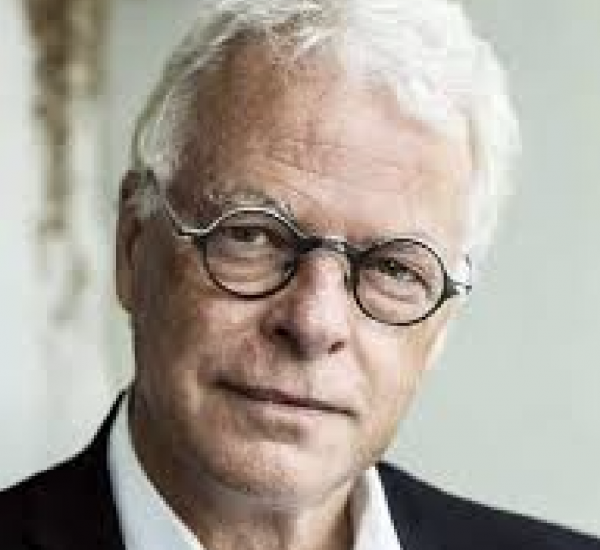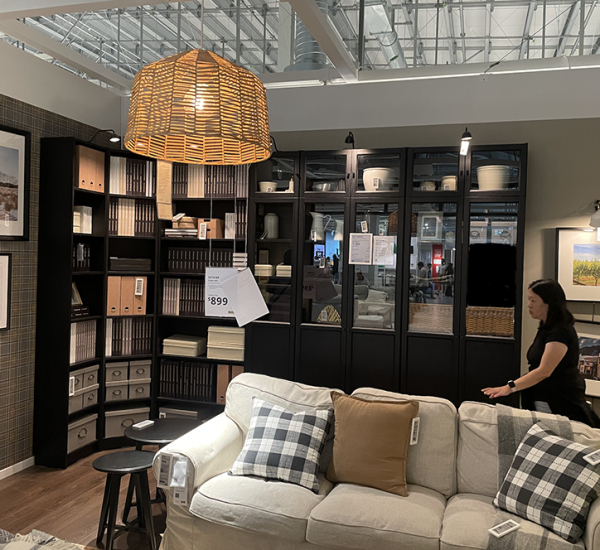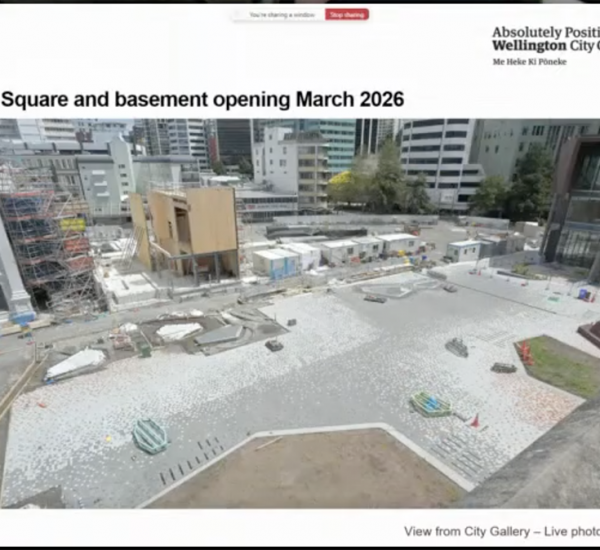After a long conversation with an old friend the other night, having reconnected since, you know, Covid and all, my friend gave me a challenge. Assuming, as Andy Foster said on the Fish yesterday, that we need to think about how the post-Covid world is going to be different from the pre-Covid world, then my friend challenged me to think about: what do I want to do with the rest of my life? What are my top 10 things to accomplish in my remaining years (who knows – maybe months? weeks? days?!) on planet Earth?
That’s a pretty big ask for anyone to think about – and I thought I’d throw it open to all of you rather than just spout off myself – but assuming that indeed, everything changes, then I’ve got to change too. How? Why? but most importantly – What?
OK – seeing as its my turn, I’ll start off: I’d like to write a book. Caveat: one that people would like to read. Clearly therefore, that means not the book of the blog, as that’s already online and little read. How to write the next Harry Potter?
In the mean time, and because it is my friend’s favourite text to quote, here’s a little bit by Henry Thoreau, on Solitude, from Walden, about life down in his hut on Walden Pond.
“Men frequently say to me, “I should think you would feel lonesome down there, and want to be nearer to folks, rainy and snowy days and nights especially.” I am tempted to reply to such – This whole earth which we inhabit is but a point in space. How far apart, think you, dwell the two most distant inhabitants of yonder star, the breadth of whose disk cannot be appreciated by our instruments? Why should I feel lonely? is not our planet in the Milky Way? This which you put seems to me not to be the most important question. What sort of space is that which separates a man from his fellow and makes him solitary? I have found that no exertion of the legs can bring two minds much nearer to one another. What do we want most to dwell near to? Not to many men surely, the depot, the post-office, the bar-room, the meeting-house, the school-house, the grocery, Beacon Hill, or the Five Points, where men most congregate, but to the perennial source of our life, whence in all our experience we have found that to issue, as the willow stands near the water and sends out its roots in that direction.”

“We are the subjects of an experiment which is not a little interesting to me. Can we not do without the society of our gossips a little while under these circumstances – have our own thoughts to cheer is? Confucius says truly, “Virtue does not remain as an abandoned orphan; it must of necessity have neighbours.” “
“With thinking we may be beside ourselves in a sane sense. By a conscious effort of the mind we can stand aloof from actions and their consequences; and all things, good and bad, go by us like a torrent. We are not wholly involved in Nature. I may be either the driftwood in the stream, or Indra in the sky looking down on it…”




And just a quick note at how deeply the Post-Covid world is going to change us, while I was writing that small post above, Bauer Media has just gone bust. The publisher of the Listener – arguably the only intelligent written media in New Zealand. Woman Weekly and North & South as well – all of them gone – lost, like tears, in rain….
I have less unalloyed feelings about the passing of Bauer from New Zealand. They added little to journalism here, largely buying up distressed titles and “rationalising” them – sometimes into oblivion. Moreover, it is inconceivable that they will not be aiming to sell off their only real assets – the intellectual property, subscription lists and brand recognition of those same titles – as soon as a market starts to return. What might happen is a scaled down version of the Bezos purchase of the Washington Post. A cashed up philanthropist might be able to buy the Listener, for example, at a fire sale price.
But for me at least, the Listener has for years now been a depressing reminder of what was lost.
I worked at the golden age Listener, which doubtless colours my judgement, but the 21st century version had come to seem so shrivelled and self-obsessed that I stopped reading it long ago. When I learned just yesterday that they were using Bill Ralston as a political columnist I was appalled, but hardly surprised. I guess Mike Hosking was out of their price range.
Well, i didn’t have the benefit of having worked there, but i liked it. Not so much the WW or Next and N&S was always just too damn needy. And now we’ve got nothing.
But i think the problem is wider than that – the entire media system is bust. Print, Audio, Video, the whole Rodeo.
Everything at present depends on advertising, but the problem is, absolutely no one wants to have to sit and read / look / listen to them damn fool adverts. The only people making money are Facebook and Google, who have advertisements everywhere, none of which i ever watch, and yet Page and Brin have set up the market so that they get paid regardless. That’s one of the key reasons – no, THE key reason that this blog site has ZERO advertising – is that I don’t want to have to read it, and so I presume that neither do you. I get requests from people, real or imaginary, every day on the email saying – “hey, we could run some adverts on your blog and get you a stream of money coming in.” No thanks. Fuck off.
So – the commercial radio stations are awful, full of ads and stupid presenters – I mean seriously, who the heck wants to find out about whether Jace and Jay Jay have slept with Grant and FiFi or whatever shit they are prattling on about. Ergo: I only ever listen to RNZ National / Concert or RadioActive. Similarly – TV is now so bad that no one watches it – primarily because there are so many adverts of such low quality exhorting you to buy things you have no interest in. McDonalds? No. Harvey fucking Norman? No. Harmoney, the place to go to when you want to borrow money? No, fuck right off you greedy grasping lepers. Seriously – i never want to see another advert for anything in my life. Adblocker keeps me sane on the internet. Covid is (unintentionally) blocking out a lot of shit right now.
Sadly, to me, the Listener is not part of that toxic pile of shit, and will be missed by the Fish.
Seems that people want to read/watch/listen more than ever right now. And content makers want to write and produce at least as much as ever. What we need is to leave advertising behind and rebuild the direct creator-audience connection. That could be via subscription or via taxation (the old broadcasting argument), or even through philanthropy where taxation remains a dirty word.
So, Starkive – and others – what is on your list for change? For the new year?
Just in time (or at the worst possible time) I recently exited the salaried workforce to set up in a small-time consultancy aimed at rescuing museums, archives and galleries from their capital works problems and extravagances. In the spirit of the regional AINZ award for one of my long ago refurbishments with Athfields which was cited for its “conspicuous thrift”, I am firmly of the belief that less can achieve a lot more in this sector.
Unfortunately all my nearly-in-the-bag clients have gone – understandably – quiet in the last couple of weeks, leaving me to wonder why I didn’t buy more dressed pine for the Rietveld tables before Mitre 10 shut down.
Meanwhile I have a five-year-old daughter to home school. That’ll keep me busy I think.
Out of idle curiosity, when was The Listener’s golden age?
Well, some might say that it was when Edith Wharton worked as a sub, but the more usual consensus would be from the mid-70s to early 80s.
That’s the Tom Scott, Rosemary McLeod, Geoff Chapple, Tony Reid, Bruce Connew, AK Grant, Diana Wichtel, Gordon Cambell, Bogor era. Essentially it was the time between the launch of TV2 (and the consequent public thirst for TV listings to fuel the fight for control of the Philips K9) and the Douglas deregulations and explosion of consumer choice – including for magazines. There was a moment when Tom Scott, Geoff Chapple and Gordon Campbell seemed like the only effective opposition to the Muldoon government.
During that time it was dominant in New Zealand publishing to an extent probably unparalleled in the non-totalitarian world. In a country with fewer than 3 million people able to read, close to half of them would read some part of it every week. Sales of around 800,000 copies were shared around families, workplace canteens and dentists’ waiting rooms. It didn’t sell advertising, it granted space to advertisers. It was everywhere.
I forgot Marcia Russell and Helen Paske.
On the other side of that Listener question though, was the fact that it was a monopoly – it had the only license for printing the TV schedule back then – now anyone can get the listings, and so therefore its no longer a monopoly, and thus they’re going bust. Let’s face it – the internet and deregulation has changed the world (not always for the better) and print media is mostly dead. Whether they know it or not, or whether they admit it or not, they are the walking dead. Instead of the Listener, North and South, Women’s Weekly, and others (some are saying that Home magazine is gone too?), we now will have The Spinoff, Newsroom, and sadly, shit like Facebook. Of those, its only the last one that is highly read and making money – lots of it – all of it.
None of the young things in our office buy the newspaper, or the Listener, or the Woemens Weekly, but they have all been getting Home free of charge courtesy of being architects. So now it will be even more ArchDaily, ArchiPro, ArchitectureNow, and hopefully (but not likely) Eye of the Fish.
Getting back to the original point of this post – that had been one of Maximus’s aims, back in 2008, that this blog may become an indispensable part of daily life. I think that has been dashed as well.
In a slippery, ephemeral, digital world, I think there will be a continuing value placed on analog things like ink on paper. They will likely move further up-market – as you say, what good are newspapers going to be? But just as we don’t all sit on $29.99 resin chairs from the Warehouse, or wear $14.99 t-shirts from Comme de Glasson, some people won’t be satisfied with web media alone. They will want to feel the slick heft of a glossy shelter magazine in their hands, and stack them just a little askew on their coffee tables.
There are reasonable grounds for imagining a Universal Basic Income society where people spend more time on very analog hands-on activities (knitting, gardening, baking) – as much to individuate and offset the digital blanding as to balance the budget.
New Zealand’s memories of that kind of DIY culture aren’t too deeply buried. In the face of a ubiquitous imported culture, it gave rise to Flying Nun, Geoff Murphy and Rip It Up. Perhaps the Eye should be desk-top published.
Can we agree that the strange wooden crates that the Beehive uses for podiums in the press conferences needs an architectural rethink?
Yes – although they’re better than the US podium – or maybe its just that the speakers behind them are better? Honestly, I watched a little of one of Rump’s ranting today – it just makes me cringe and feel sorry for America to have such a cretin in charge. We may be small, but we have speakers with intelligence – Jacinda, Grant, Ashley. If only Rump would leave Fauci to do the sessions himself, and spare us the endless lies and bullshit and bragado….
Ummm, where was I ? Oh yes – the podium. Do you think that they were actually redesigned by WaM when they remodelled the Beehive a few years back? Are they literally meant to be the structure in a real beehive where you slot in the combs for the honey…? I wonder…
A long article, but an interesting one, here:
https://theconversation.com/what-will-the-world-be-like-after-coronavirus-four-possible-futures-134085
Simon Mair notes: “From an economic perspective, there are four possible futures: a descent into barbarism, a robust state capitalism, a radical state socialism, and a transformation into a big society built on mutual aid. Versions of all of these futures are perfectly possible, if not equally desirable.”
I’ve been thinking about this one for a while
The first thing is that here in NZ people are going to try to recreate what we had before and that will run into problems – people want to believe in a V-shaped recession
Live music, pubs, clubs are fairly screwed – don’t forget that this thing will return in waves to other countries that haven’t done the eradication measures that we are on track to do
If we can stamp it out and therefore mix freely within the country I would like to see us as a country extend our aegis to our Pacific Island cousins – they help us mutually with our harvest labour and they need help now with Cyclone Harald
I don’t rate the chances of a descent into barbarism or full state socialism either. In the former case the fabric is too strong and in the latter NZ has already set what level of socialism it is willing to pay for (eg the ACC) and I can’t see that changing radically
I think that we will end up with the govt mandating some sort of mutual aid and the old invisible hand of the market remaining the guiding principle
Here’s what I think we will see change markedly-
-Savings will increase – either mandated or voluntary people will realise that without a cash backstop they are in the schtuck – some emergency discretion around kiwisaver will assist with this idea
-The Good Life will become more prevalent – self-sufficiency and a desire to be independent will dovetail neatly with kiwis’ desire to not spend money.Not just farm to table and raising the odd chicken but more of a shift to semi rural and a rise in permaculture, the whole 9 yards
I’m not sure that the central city will drain out, more that those cooped up in suburbia will hanker for a few acres
-Telecommuting on the back of a reasonable fibre optic network will assist this transition above as more people will realise that those meetings were indeed a waste of travel time. Bosses will have had a real life example of what a remote workforce looks like
The model that will be most robust in terms of the future will be the Mittelstand style
https://en.wikipedia.org/wiki/Mittelstand
except of course it will be based mostly around agriculture in the provinces (and luxury tourism once the bans are relaxed)
This is what Mike Moore was always banging on about – elaborately transformed manufacturing, capturing more of the value chain
For example, where you may have a sheep farm exporting frozen carcasses you may now have the upselling of it going organic, a co-op factory in the neighbouring town that takes the meat and packages it into ready-to-eat frozen meals and then sends it to the nearest port for freighting to first world countries that are paranoid about the provenance of their food so it could all be digitally traced back to individual farms, etc
Our clean green Sars 2 free image will translate well into exportable foodstuffs in the short to medium term, given global irrational paranoia
Germaphobes with dollars is a big target market
Or a basic sort of IKEA style design shop starting around Juken Nissho’s plywood plant – freighting planter boxes and picnic tables flatpack around the country
There is now no good reason why your startup microbrewery can’t begin in cheap commercial buildings on the outskirts of Taumaranui or an old dairy factory out in Waikick a moo cow – there are benefits for staff who may want the local snowboarding/kayaking/what have you
There are going to be some cheap (relatively speaking) housing options in Wanaka/Queenstown right now as the people who used to prop up their mortgages with AirBnB income are going to go bust soon
I expect modern builds with small sections (eg Aotea) to slow and more interest in houses with land (eg Ascot Park; the dreaded Karori)
I just want to go hunting again – they’re roaring around here all night
https://www.doc.govt.nz/parks-and-recreation/things-to-do/hunting/what-to-hunt/deer/red-deer/
for you townies
I expect there to be lots of smug preppers and disappointed anti-vaxxers